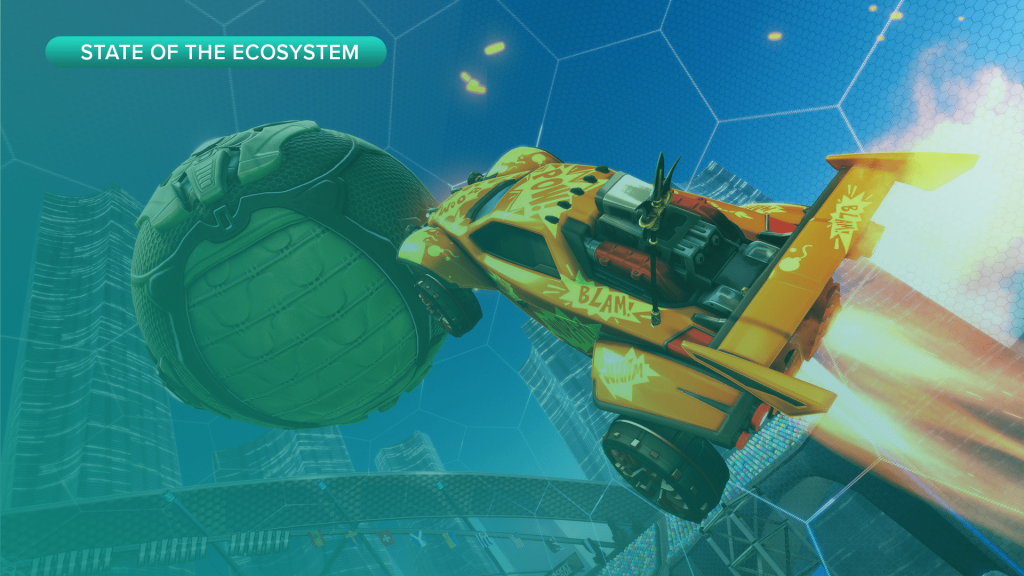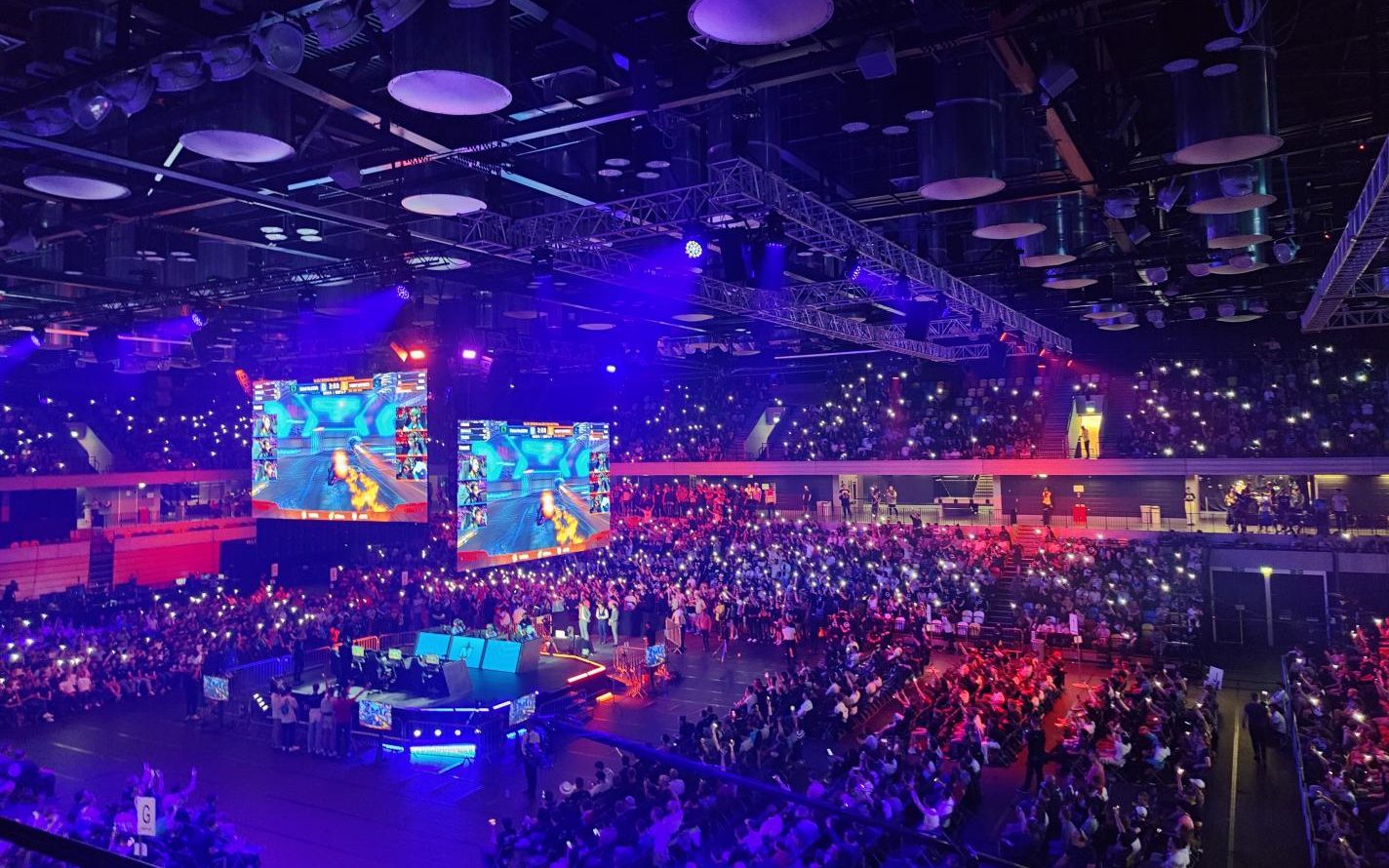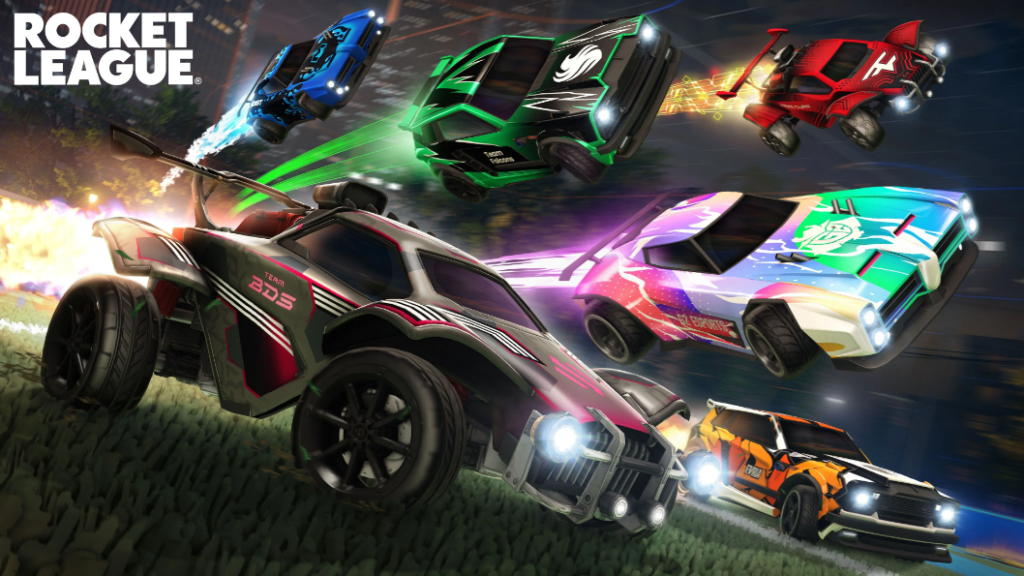State of the Ecosystem is a series overviewing the current esports scene in several major esports titles, with a primary focus on the industry side.

Rocket League is a moderately sized, tier two esport with a passionate, global community. Launched in 2015, the video game quickly went on to be a major commercial success for its then-indie developer, Psyonix, and its esports plans started soon after. Psyonix was purchased by Epic Games in 2019.
Rocket League’s esports scene is largely developer-run, with its official tournament circuit, the Rocket League Championship Series (RLCS), run by Psyonix. The current 2022-23 season of RLCS has a total prize pool of $6m (~£5.2m). Rocket League is a truly global esport: the RLCS circuit operates across six regions: Europe, North America, South America, Oceania, MENA and Asia-Pacific, with separate tournaments for Sub-Saharan Africa.
Each season is structured into three splits; Fall, Winter and Spring, with three online regional tournaments held in every region per split. Each split ends with an international LAN tournament between the best-performing teams from the regionals. Teams collect points throughout the season based on placements, and the top-placing teams are invited to the season-ending offline Rocket League World Championship.
Notably, Psyonix has a revenue-sharing model for Rocket League where select esports organisations are given branded in-game items. Revenue from these microtransactions is split 30/70 between teams and Psyonix respectively. Moreover, Psyonix allows esports teams’ commercial sponsors to be featured on the in-game items themselves. Sponsor-branded in-game decals, which Psyonix were arguably the first to do in esports, offer valuable and authentic in-game advertising inventory for teams to sell.

The game is also seen as more advertiser-friendly than many other esports titles. It has an E for Everyone ESRB rating due to its lack of guns, blood or death, opening the door to advertisers who are reluctant to have their brand featured in games deemed ‘violent’.
However, Rocket League’s viewership is more modest. The game’s major offline tournaments consistently receive 200,000-300,000 peak viewers (its record peak viewership was 369,000 in 2022), but this pales in comparison to the several million concurrent viewers achieved by the largest esports titles.
Rocket League’s esports scene skews younger, both in terms of audience and professional players. It is particularly popular in North America, but also has a large fanbase in several other countries internationally including France, Spain, the UK, Australia and Brazil. Due to its smaller size and being a newer scene, operating costs for a pro team in Rocket League are reportedly much lower than in flagship esports titles like League of Legends.
With revenue support from publishers, a more brand-friendly game, and a young and engaged audience, the Rocket League esports ecosystem lays on strong foundations, though its comparatively low viewership continues to hold it back from breaking into esports’ upper echelons.
Notable Leagues and Tournaments
The RLCS dominates the Rocket League esports calendar, though there are still some third-party tournaments. One notable third-party tournament outside the RLCS circuit is Gamers8.
Most viewed tournaments
Rocket League gets stable and consistent viewership in the low hundreds of thousands — perhaps owing to the fact viewers receive in-game item drops for watching. However, this is comparatively low compared to some other esports titles. These are the top five highest viewed Rocket League esports tournaments by peak viewers, according to Esports Charts data:
- RLCS 2021-22 – World Championship (368,721)
- RLCS Season 8 World Championship (280,495)
- RLCS 2021-22 Fall Split Major (280,226)
- RLCS Season 9: Europe (261,359)
- RLCS 2021-22 Winter Split Major (261,287)

Notable organisations
Rocket League has attracted some of the biggest esports organisations the world over, thanks to its global appeal.
Note this is a non-exhaustive list and exclusion does not signify an organisation is not notable.
